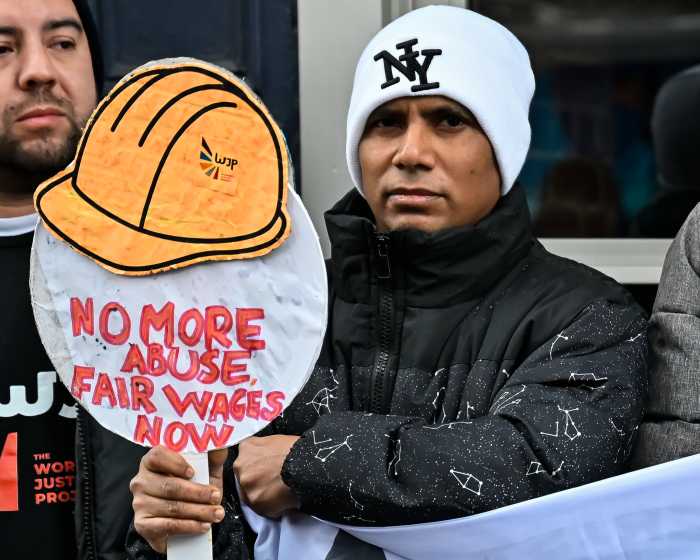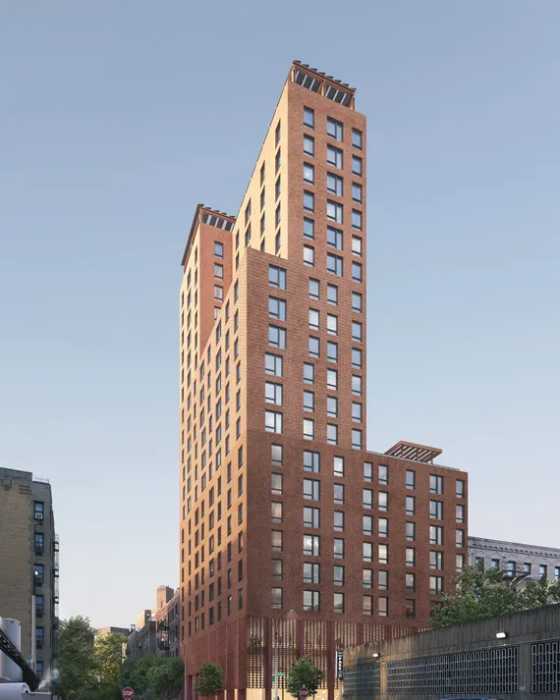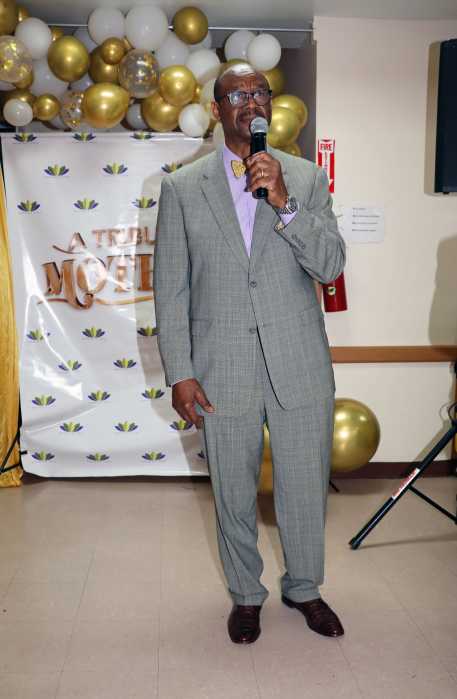Candidates running for public advocate have strongly touted their records on LGBTQ issues in a last-minute push to court progressive votes ahead of the anticipated February 26 special election to replace Letitia James, the state’s new attorney general.
Now it’s time to drill down to the specifics of how they compare on issues pertaining to the community.
Gay City News has created an LGBTQ voter guide featuring each candidate who qualified for the first televised debate, aired on NY1 News on February 6.
JUMAANE WILLIAMS
Williams has heavily marketed his work in spearheading the passage of the 2013 Community Safety Act, which expanded protections for a range of demographics — including LGBTQ folks — when dealing with police officers. That bill is mentioned by his mother in his ads, he lists it on mailings, and he has cited it during events.
But Williams stumbled in the first televised debate when he didn’t answer questions from Bronx Assemblymember Michael Blake and former City Council Speaker Melissa Mark-Viverito, who both asked him about his history of opposition to same-sex marriage (Williams now supports marriage equality, and he explained his evolution in a 2017 interview with Gay City News). In tweets after the debate, he said he “answered it repeatedly” and that it was “nefarious” to suggest that he dodged the questions — even though he did not answer either question when asked that evening.
Among city politicians, Williams has been one of the main voices to shine a light on the plight of transgender women of color, who continue to face high levels of violence — and their cases are often times left unsolved by police departments nationwide that have a record of misgendering and mistreating them.
Williams has landed the endorsement of an LGBTQ group, the Jim Owles Liberal Democratic Club. During an endorsement event for another LGBTQ club, the Stonewall Democratic Club of New York City, he explained that he abstained from voting on a 2014 bill that would have allowed folks to change the gender marker on their birtch certificate because of his concern that midwives were among those who would have been able to sign off on it. (The city has since eliminated the need for such sign off from any care professional.)
Gay City News reported that Williams falsely stated in a Stonewall public advocate candidate questionnaire that he never donated to or supported anti-gay candidates despite giving money to homophobic City Councilmembers Chaim Deutsch of Brooklyn and Fernando Cabrera of the Bronx. To his credit, he apologized and stated that he would make a commensurate donation to LGBTQ groups.
Williams noted in the Jim Owles questionnaire that he allocated $7,500 to LGBTQ groups in fiscal year 2019 and at least $3,500 to other LGBTQ groups — among them, the Brooklyn Community Pride Center, Gay Men of African Descent, SAGE, and the LGBT Community Center — every year since 2011.
MELISSA MARK-VIVERITO
The former City Council speaker has an extensive LGBTQ platform — arguably the most robust one of all the candidates in the race. During an interview with Gay City News in December, she outlined ways in which she would advocate for programs assisting LGBTQ entrepreneurs, support services for queer seniors, and expanding HIV testing, care, and services. But during that interview, she was short on specifics.
Mark-Viverito said her LGBTQ platform is a product of conversations with members of the community, and she has had a strong record on queer issues dating back to her time serving on City Council. She points out on her campaign website that the Council, under her leadership, passed bills requiring single-occupancy restrooms and protecting trans and gender-nonconforming people from harassment. She also was the prime sponsor of the law banning gay conversion therapy in the city.
But like Williams, Mark-Viverito also falsely claimed in the Stonewall questionnaire that she had not donated to or supported anti-gay candidates. She donated to Deutsch in 2013 and endorsed him in his re-election bid in 2017, which was after she watched him stand out as one of the few lawmakers to vote against LGBTQ rights during her speakership.
Mark-Viverito has earned the endorsement of Lambda Independent Democrats of Brooklyn in this race. In a Jim Owles questionnaire, she noted that she has allocated funds to the LGBT Community Center, SAGE, Lambda Literary, the Hetrick-Martin Institute, and the Queens LGBT Health Services Network.
DANNY O’DONNELL
O’Donnell, a Manhattan state assemblymember, was the first openly gay man elected to the State Assembly and is the only out gay candidate in what has been a crowded special election field. O’Donnell is also among the candidates who have repeatedly pointed to his LGBTQ record in his campaign advertisements and public talking points, and he is especially proud of the work he did to pass marriage equality in the State Legislature, where he first steered the measure to victory in 2007.
O’Donnell is backed by Stonewall, but he has struggled to gain enough wider traction in the race. He participated in the first televised debate, but did not qualify for the second one on February 20, based on the amount of money he has raised.
And while the assemblymember talks about his existing body of work on LGBTQ issues, his campaign website lacks substance on how he would address queer issues as the city’s next public advocate. He makes a reference to ending AIDS by 2020, citing a need for increased resources, but that’s the extent of it.
MICHAEL BLAKE
The Bronx assemblymember and vice chair of the Democratic National Committee was comfortable enough to attack Williams on LGBTQ issues in the first televised debate — and his campaign page appears to back up his own record on the issues.
Blake has an extensive LGBTQ platform on his website, where he proudly mentions that he co-sponsored GENDA and the ban on conversion therapy in New York. During President Barack Obama’s 2012 campaign, he led a national call with clergy to stress the need for marriage equality.
As public advocate, he pledges to expand domestic violence protections for LGBTQ folks and to increase legal services in the areas of housing, healthcare, employment, education, immigration, and for veterans seeking upgrades from a negative discharge status. Veterans seeking such upgrades include those who were discharged due to the military’s Don’t Ask, Don’t Tell policy.
The assemblymember previously received the backing of LGBTQ groups, such as when Stonewall endorsed him in his campaign for his DNC vice chair post. Blake said in a questionnaire for Jim Owles that he allocated funds to Boom Health in the Bronx and SAGE.
In his Stonewall questionnaire, Blake acknowledged that he had donated to candidates with anti-gay records before, but he nipped that issue in the bud when he asked for a $1,000 donation he had made to Ruben Diaz, Sr., back.
RAFAEL ESPINAL
Councilmember Espinal of Brooklyn addresses LGBTQ issues head-first and with a sense of urgency, noting on his site that “now more than ever, we in New York city must continue to lead on protecting our friends and loved ones who identify as LGBTQ and make clear that no intolerance will ever be allowed in our city.”
Espinal pointed to his support for legislation requiring city agencies to gather information about the sexual orientation and gender identity of the people they serve, among other bills, and also said that his bill removing the archaic ban on clubs without a cabaret license from allowing dancing benefits the community because of the history of LGBTQ establishments being unfairly targeted by law enforcement.
If elected public advocate, Espinal says he would insist on a zero-tolerance policy for hate crimes, continue to make sure people can access bathrooms aligned with their gender identity, expand access to HIV testing and to PrEP, and protect LGBTQ nightlife by focusing on safe spaces for queer people of color.
ERIC ULRICH
The only Republican to participate in the first debate, Ulrich has stressed that he leans to the left on social issues — including marriage equality and abortion rights. Yet the 34-year-old city councilmember from Queens previously opposed same-sex marriage rights.
And now marriage equality is a settled issue nationwide — and Ulrich makes no reference to other LGBTQ issues on his platform page. Instead, his platform includes rhetoric about how the education system “does not work for religious families” and that the state education commissioner is “imposing draconian regulations” that will “eliminate the rights of every parent to educate their children as they see fit.”
Ulrich also did not qualify for the second televised debate.
DAWN SMALLS
Smalls, an attorney who has served in the Clinton and Obama administrations, does not address LGBTQ issues on her campaign’s “issues” page.
She unsuccessfully sought the endorsement of Jim Owles, and said in that group’s questionnaire that she has never been involved with any LGBTQ organizations, either on a volunteer basis or professionally. And while other candidates answered in that same questionnaire that they would hire an LGBTQ person to serve as a liaison to the community, she said she wouldn’t due to budget constraints. At a January 16 candidate forum hosted by the city’s LGBTQ political clubs, Smalls, when asked about LGBTQ youth needing shelter, paused and said “the majority” of the homeless are children under six and these families had the biggest need.
NOMIKI KONST
Konst, a 2016 Bernie Sanders surrogate and investigative reporter with The Young Turks online news program, is another candidate who lacks an LGBTQ issues section on her campaign page.
She said in her Stonewall endorsement questionnaire that, as a member of the 2016 Democratic National Convention platform committee, she helped to codify the party’s commitment to progressive policy areas “that are known to disproportionately impact the LGBT community,” but didn’t get more specific than that.
Konst added that she plans “to implement a real, accountable system of LGBT, people of color, and gender representation in New York City’s leadership pipeline, from community boards to the mayor’s office.”
Konst has never served in public office, leaving her with no voting record on LGBTQ issues.
YDANIS RODRIGUEZ
This Upper Manhattan city councilmember’s LGBTQ record is a mixed bag: On paper, his voting record shows him to be a supporter of the community, but his reputation on gay rights has crumbled in recent years over his unwavering ties to homophobic politicians — and now he doesn’t even seem to care.
Rodriguez had the backing of Stonewall and Jim Owles in his City Council re-election campaign in 2017, but those endorsements were pulled when he deepened his ties to infamous homophobe Diaz, Sr., who is embroiled in yet another scandal for anti-gay comments. Now Diaz is throwing his support behind Rodriguez, who has not publicly chided his friend for his comments.
Rodriguez shredded any remnants of LGBTQ support last week when he joined his homophobic colleagues Deutsch and Cabrera in refusing to vote for the dissolving of Diaz’s committee. Rodriguez and Cabrera abstained, while Deutsch voted in opposition. Bronx Councilmember Andy King, who has typically abstained from LGBTQ rights bills, also abstained here.
A spokesperson for Rodriguez’s campaign told Gay City News last month that he “has always supported the LGBTQIA community and stands for equality for all,” but did not respond to an inquiry regarding endorsements he has received from Diaz and Cabrera.
Rodriguez will not participate in the second televised debate, as he did not qualify.
RON KIM
Kim, who serves as an assemblymember in Queens, does not list any LGBTQ issues on his campaign page, but he most recently was a co-sponsor of the Gender Expression Non-Discrimination Act, a transgender civil rights measure, as well as the state’s ban on conversion therapy, both of which were enacted into law last month.
Kim has received support from LGBTQ groups in the past, including Stonewall, but was not among the candidates to fill out a questionnaire for any LGBTQ groups in the race for public advocate.













